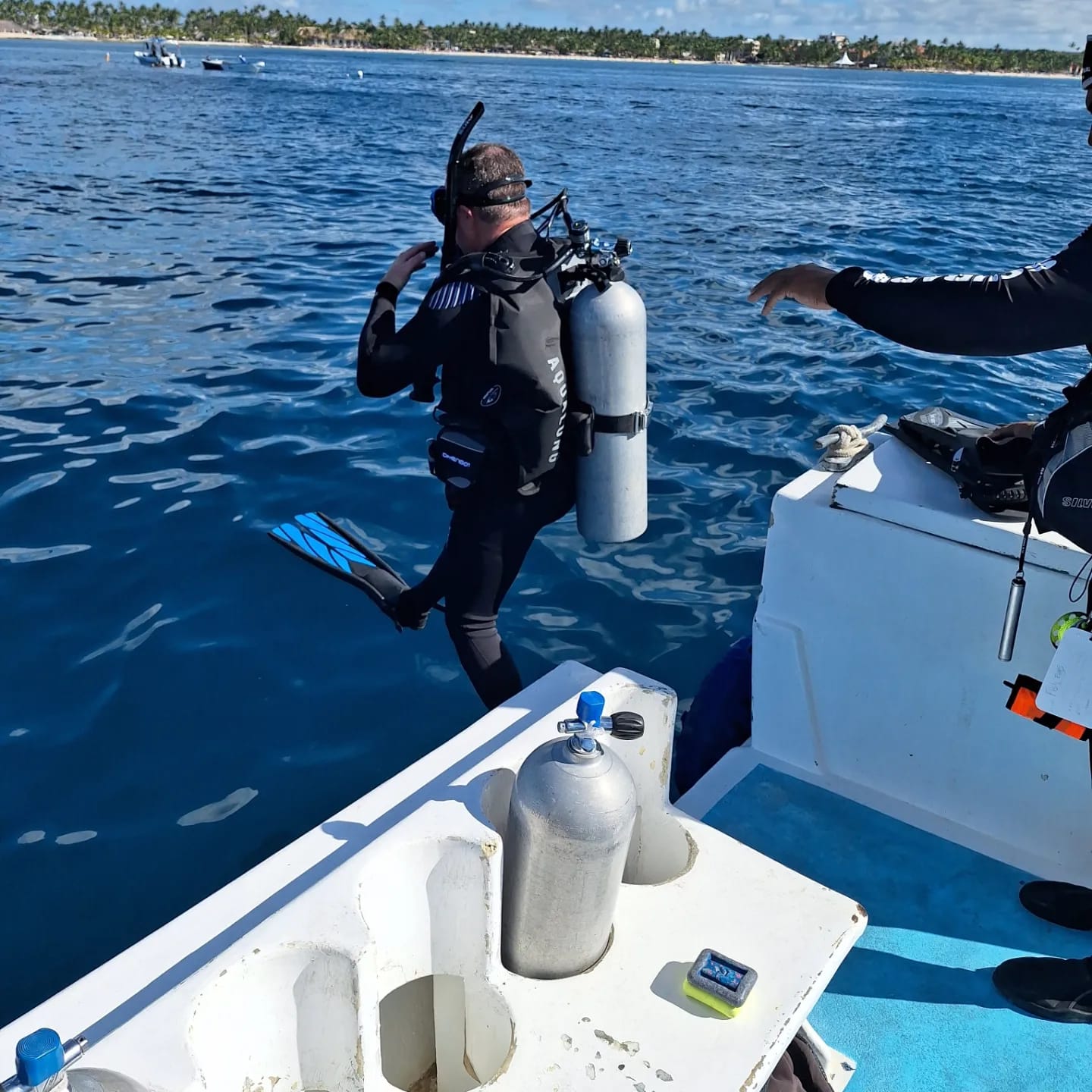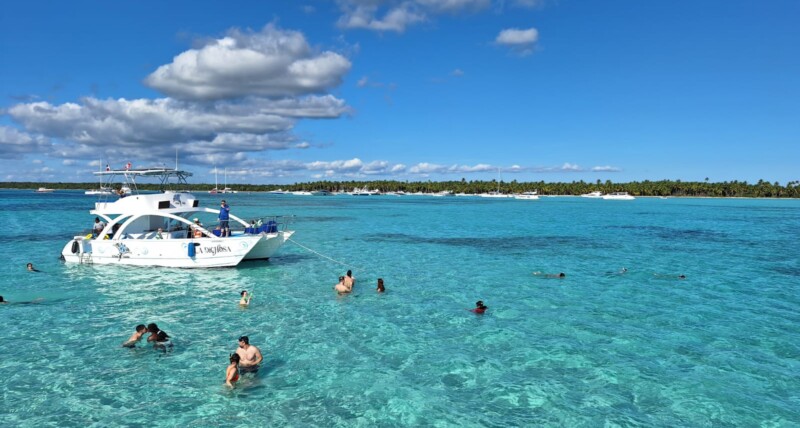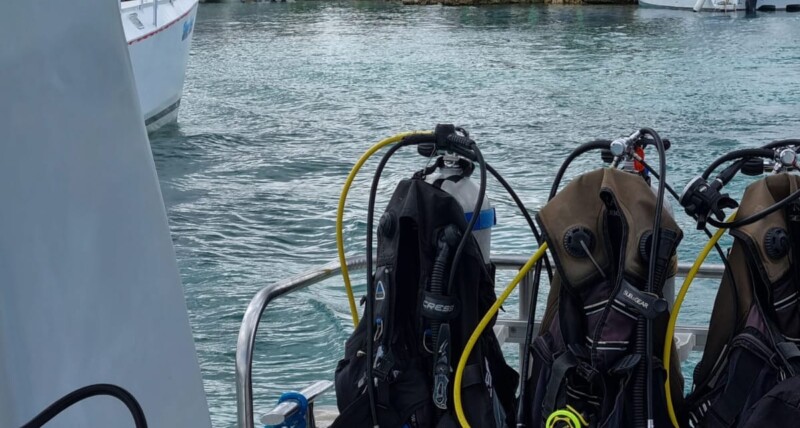Scuba diving is an exhilarating sport that offers an unparalleled glimpse into the underwater world. However, for beginners, the excitement can sometimes overshadow crucial safety measures. Mistakes made underwater can be fatal, and awareness is key to prevention. This comprehensive guide will delve into seven critical mistakes that novice divers often make, providing you with the knowledge to enjoy a safe and thrilling dive every time.
Understanding the Importance of Safety in Scuba Diving
Safety in scuba diving cannot be overstated. It’s essential to understand that the underwater environment, while beautiful, poses unique risks. Prioritizing safety ensures that each dive is not only enjoyable but also devoid of preventable dangers. Proper training, equipment maintenance, and adherence to diving protocols are fundamental to mitigating risks.
Avoid These Fatal Mistakes While Diving:
1. Ignoring Pre-Dive Safety Planning and Checks
One of the first lessons in diving is the importance of pre-dive safety checks. At Private Dive Service, we use the BWRAF system:
- B – Buoyancy Control Device (BCD): Ensure it inflates and deflates properly.
- W – Weights: Check if you are correctly weighted.
- R – Releases: Make sure all buckles and straps are secure.
- A – Air: Confirm your tank is full and your air pressure is correct.
- F – Final Check: Verify you have all your gear, including masks, fins, and snorkels.
2. Rapid Ascent and Poor Buoyancy Control
A rapid ascent can lead to decompression sickness or “the bends,” caused by nitrogen bubbles forming in the bloodstream. Divers should ascend slowly, ideally at a rate of 30-60 feet per minute, to avoid these risks. Proper buoyancy control is vital to prevent unintended rapid ascents or descents, which can lead to injury or damage to marine life.Controlled ascents and descents are essential, using guidelines or downlines where available. Proper weighting is also critical; being overweight or underweight can cause significant issues, including the inability to maintain a safe stop or an uncontrolled descent.
3. Diving Beyond Your Limits and Without Proper Training
Always dive within your certification limits. Specialized environments such as caves, wrecks, and deep dives require additional training. Understanding concepts like oxygen toxicity and the use of nitrox mixtures is crucial for deeper dives.Entering environments such as caves and wrecks without proper training can be extremely dangerous. These areas often have complex navigation challenges and require specialized skills, including the use of safety lines and proper buoyancy control. Additionally, diving in strong currents or low visibility conditions without adequate training can lead to exhaustion, disorientation, and accidents.
4. Neglecting Equipment Maintenance
Diving equipment is expensive and requires diligent maintenance. Regular cleaning and annual servicing are essential to ensure all gear functions correctly. Neglecting equipment maintenance can lead to failures, such as inaccurate readings from gauges or malfunctioning buoyancy devices, which can be life-threatening underwater.Performing pre-dive checks on all equipment, including regulators, masks, fins, and wetsuits, is essential. Ensure your SPG and compass are functioning correctly, and be aware of any signs of wear and tear that could compromise safety.
5. Overlooking Health and Fitness
Diving while sick or congested can prevent proper ear equalization, leading to barotrauma. Maintaining good physical fitness is also crucial, as the sport can be physically demanding. Congestion can lead to serious issues underwater, including ear injuries and vertigo, which can disorient divers and lead to accidents.Physical fitness is equally important. Diving equipment is heavy, and the physical exertion of diving can be significant. Ensuring you are in good health and physically fit can prevent incidents such as heart attacks, which have occurred when divers overexert themselves.
6. Complacency and Neglecting Basics
Complacency can be dangerous, even for experienced divers. Always monitor your air supply, follow dive plans, and never skip safety stops. Regularly check your SPG and other equipment to ensure everything is functioning correctly.Neglecting basic safety measures, such as checking air levels and ensuring proper buoyancy, can lead to serious accidents. Always perform a three-minute safety stop to allow your body to off-gas excess nitrogen, especially when diving frequently.
7. Diving Without Proper Certification
Proper certification and training are non-negotiable. Diving without adequate training significantly increases the risk of accidents. At Private Dive Service, we emphasize the importance of continuous learning and skill development to ensure safe diving practices.Uncertified diving or using equipment without proper training can lead to fatal mistakes. Always seek proper certification and training from reputable dive centers. Regularly update your skills and knowledge to stay safe and enjoy your dives.
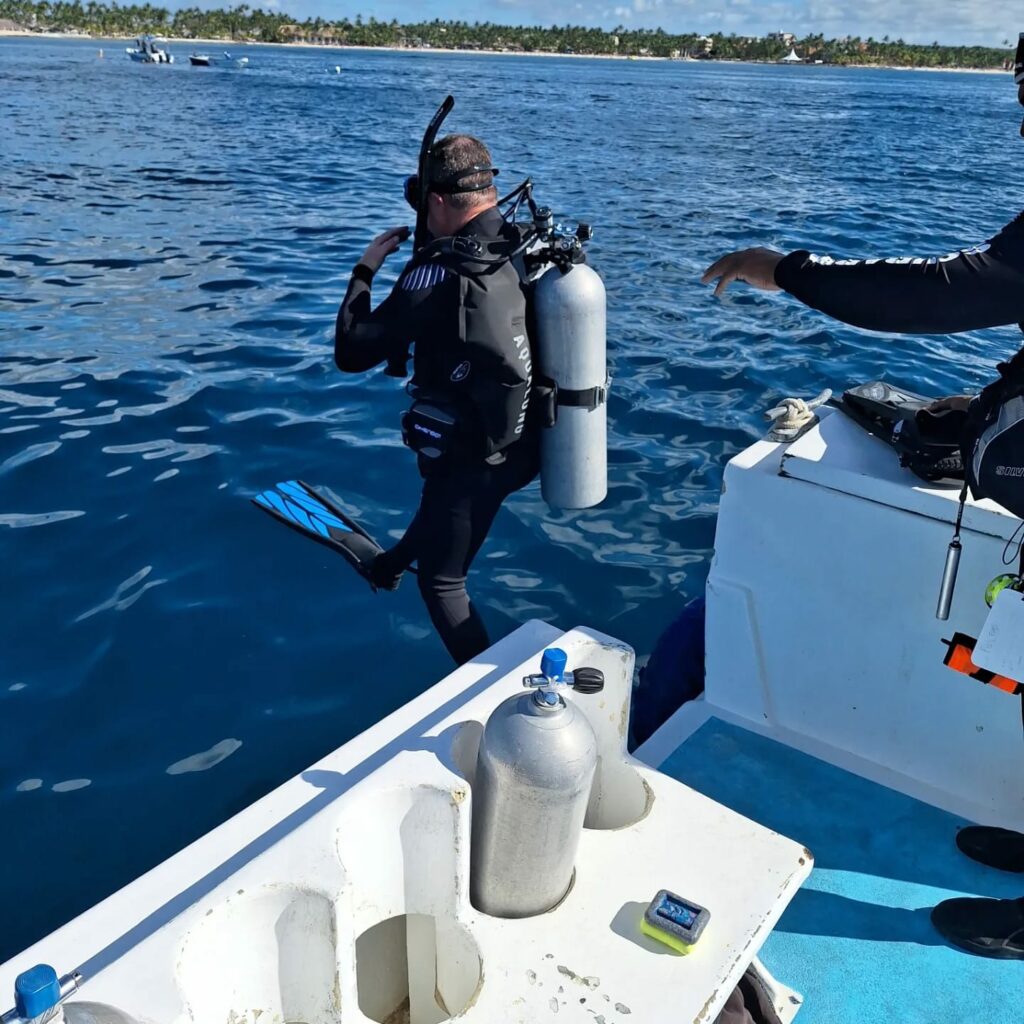
Scuba Diving with Private Dive Service!
At Private Dive Service, we plunge into the world of scuba diving to take your underwater experience to the next level. Based in Punta Cana, we specialize in providing customized and thrilling diving services to meet the needs of all our clients.
Explore our website to discover more: Private Dive Service
Don’t miss the chance to explore the underwater world with us! Contact us today.
Need immediate assistance? Connect with us via WhatsApp!: Chat with Us
Let’s venture together into the depths of the ocean with unforgettable diving experiences!
The Role of a Dive Buddy in Ensuring Safety
Having a reliable dive buddy is a cornerstone of safe diving. A dive buddy can assist in emergencies, share air if needed, and help navigate. Always perform buddy checks before a dive and maintain close proximity to your buddy underwater. Effective communication and mutual support are key to a safe and enjoyable dive.
The Importance of Diving Etiquette
Respecting diving etiquette helps ensure safety and a positive experience for everyone. This includes avoiding touching or disturbing marine life, not littering, and following the dive leader’s instructions. Good etiquette helps preserve the marine environment and promotes safety.
Recognizing and Managing Panic Underwater
Panic can be deadly underwater. Recognizing the signs of panic and knowing how to manage it is crucial. Techniques such as controlled breathing, focusing on slow, deliberate movements, and using hand signals to communicate with your buddy can help manage panic. Training exercises during certification courses are designed to prepare divers for such situations.
Understanding and Preventing Decompression Sickness
Decompression sickness occurs when nitrogen absorbed into the body tissues forms bubbles as you ascend. To prevent this, follow dive tables or dive computer guidelines, ascend slowly, and perform safety stops. Hydration before and after dives also helps reduce the risk.
The Impact of Underwater Currents and How to Handle Them
Currents can be challenging and dangerous, especially for beginners. Understanding how to read and react to currents is essential. Techniques include using the current to your advantage, maintaining close proximity to the reef or bottom, and knowing when to call off a dive if conditions are too strong.
Navigating and Using Dive Computers Effectively
Dive computers are essential tools for modern divers, providing real-time information on depth, time, and decompression status. Learning how to use your dive computer effectively can help you plan and execute dives safely. Always follow the computer’s recommendations for ascent rates and safety stops.
Understanding the Marine Environment and Avoiding Hazards
The underwater world is full of hazards, from sharp coral to dangerous marine life. Understanding the marine environment and respecting its inhabitants helps avoid accidents. Never touch or provoke marine life, and always be aware of your surroundings.
The Importance of Proper Buoyancy Control
Proper buoyancy control is fundamental for safe and efficient diving. It helps avoid damaging the marine environment, conserves air, and prevents accidental ascents or descents. Practicing buoyancy control techniques regularly can improve your diving experience and safety.
Managing Nitrogen Narcosis
Nitrogen narcosis affects divers at depth, causing disorientation and impaired judgment. Recognizing the symptoms and knowing how to respond is crucial. If you experience narcosis, ascend to a shallower depth until the symptoms subside. Training and experience can help mitigate its effects.
Dealing with Underwater Emergencies
Being prepared for emergencies is essential. This includes knowing how to perform an emergency ascent, sharing air with a buddy, and dealing with equipment failures. Regular training and practice of emergency procedures can make the difference in a critical situation.
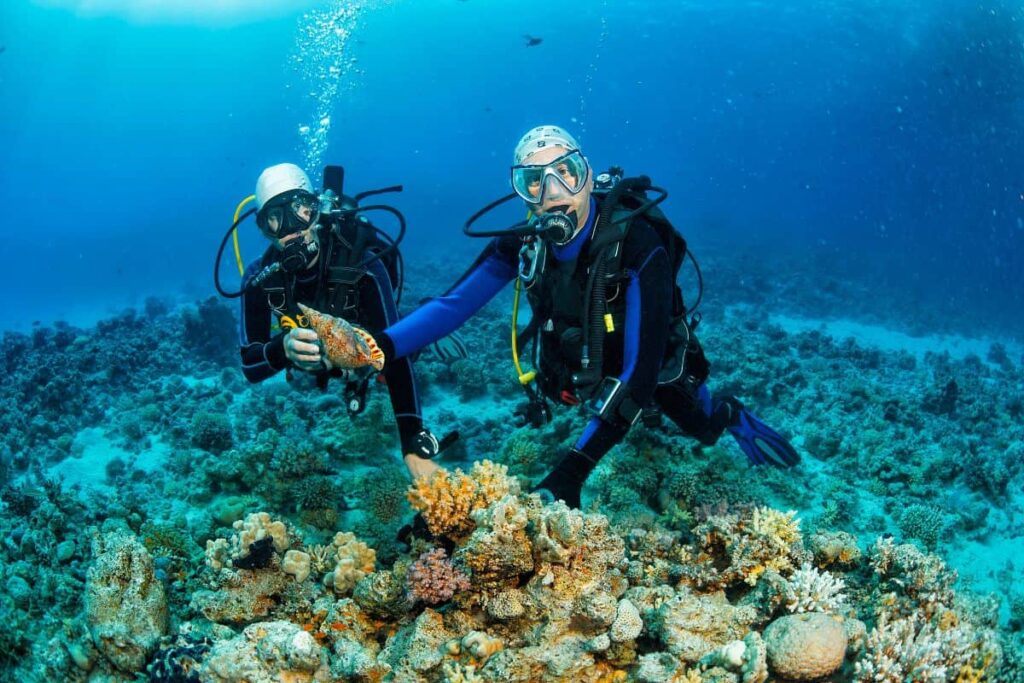
Common Myths and Misconceptions About Scuba Diving
Many myths surround scuba diving, such as the idea that sharks are a significant threat or that diving is inherently dangerous. Understanding the facts can help alleviate fears and promote a safer diving experience. Education and training are key to dispelling misconceptions.
The Psychological Aspects of Scuba Diving
Mental preparedness is as important as physical fitness in diving. Overcoming fear, building confidence, and maintaining calmness underwater are essential. Techniques such as visualization and relaxation exercises can help improve mental readiness for diving.
Legal and Environmental Responsibilities of Divers
Divers have a responsibility to follow local laws and regulations, as well as to protect the marine environment. This includes obtaining the necessary permits, adhering to protected area guidelines, and participating in conservation efforts.
The Importance of Ongoing Education and Skill Development
Scuba diving is a lifelong learning process. Regularly updating your skills and knowledge through advanced courses, specialty training, and dive workshops helps you stay current with best practices and new technology. Continuous education enhances safety and enjoyment.
Developing a Personalized Dive Plan
A well-thought-out dive plan considers factors such as dive site conditions, personal fitness, equipment status, and emergency procedures. A personalized plan tailored to your experience and comfort level helps ensure a safe dive.
Learning from Experienced Divers
Experienced divers can offer valuable insights and tips that aren’t covered in standard training. Joining dive clubs, participating in group dives, and seeking mentorship can enhance your diving skills and knowledge.
Building Confidence Underwater
Confidence underwater comes from practice and experience. Regular diving, skill drills, and positive reinforcement from dive instructors and buddies help build the confidence needed to handle various diving situations calmly and effectively.
Essential Gear for Safe Diving
Having the right gear is crucial for a safe dive. This includes a well-fitting mask, reliable regulator, BCD, fins, and exposure protection suitable for the water temperature. Investing in quality equipment and maintaining it properly enhances safety and comfort.
Techniques for Efficient Air Consumption
Efficient air consumption allows for longer and more enjoyable dives. Techniques include proper breathing, minimizing unnecessary movements, and practicing good buoyancy control. Monitoring your air supply and learning to dive relaxed can significantly improve air efficiency.
Understanding the Different Types of Dives and Their Risks
Different types of dives, such as wreck dives, cave dives, and night dives, come with unique risks and challenges. Understanding these and receiving proper training for each type ensures safe and successful dives. Always dive within your limits and seek specialized training for more complex dives.
Preparing for Night Dives and Low Visibility Conditions
Night dives and dives in low visibility require additional skills and preparation. Using appropriate lighting, staying close to your dive buddy, and having a clear dive plan are essential. Training and experience in these conditions help improve safety and enjoyment.
Conclusion
Scuba diving is a thrilling and rewarding activity that offers a unique perspective on the underwater world. However, it is not without its risks. By understanding and avoiding the common mistakes that many beginners make, you can ensure that your diving experiences are safe, enjoyable, and enriching. Proper training, equipment maintenance, and adherence to safety protocols are the foundations of responsible diving.
FAQs
What should I do if I feel panic underwater? If you feel panic underwater, stop and try to control your breathing. Signal your dive buddy for assistance and slowly ascend if necessary. Practice breathing techniques and stay calm to manage the situation effectively.
How can I improve my air consumption? Improving air consumption involves practicing efficient breathing techniques, maintaining good buoyancy control, and minimizing unnecessary movements. Regular practice and relaxation can also help.
What are the signs of decompression sickness? Signs of decompression sickness include joint pain, dizziness, fatigue, difficulty breathing, and numbness. If you suspect decompression sickness, seek medical attention immediately.
Why is proper buoyancy control so important? Proper buoyancy control helps conserve air, prevents accidental damage to the marine environment, and enhances safety by avoiding uncontrolled ascents or descents. It also improves overall dive efficiency and enjoyment.
How often should I get my equipment serviced? Dive equipment should be serviced at least once a year or according to the manufacturer’s recommendations. Regular maintenance ensures reliability and safety during dives.
What should I consider when choosing a dive buddy? When choosing a dive buddy, consider their experience level, communication skills, and reliability. A good dive buddy is someone you can trust and communicate with effectively underwater.

